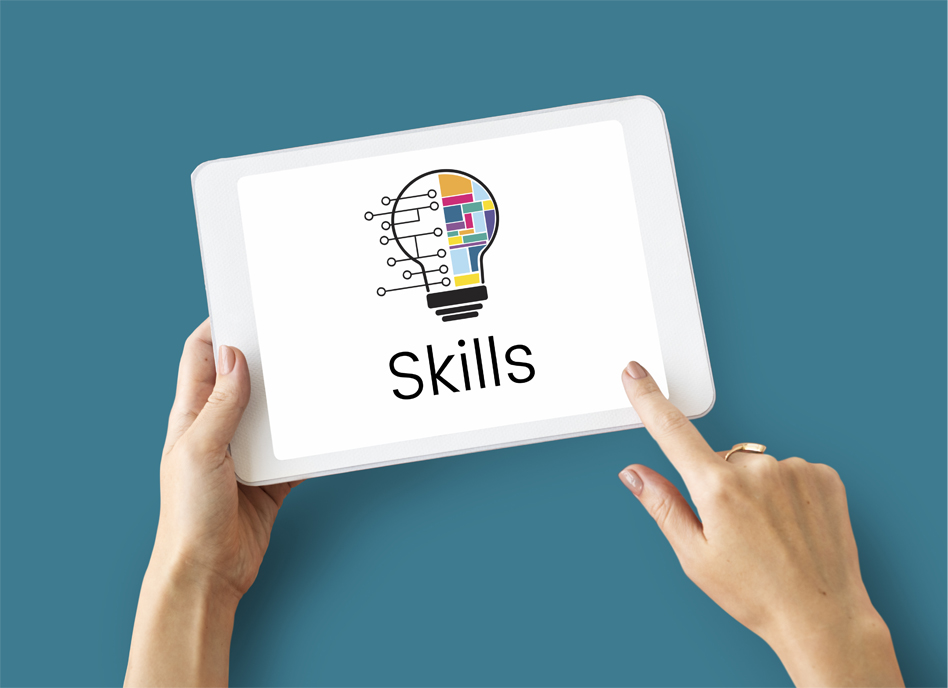How to assess your e-learners knowledge and skills: 5 tips to apply now
Assessing learners is a crucial part of any e-learning course. However, more than determining whether your online learners pass or fail the subject matter, effective e-learning evaluation measures knowledge mastery.
By regularly assessing your e-learners' knowledge and skills, you can provide avenues for your online learners to practice what they have learned and apply the knowledge in the real world. Through assessment tools like quizzes and simulations, e-learners can practice the subject matter and, as such, be able to break the lessons down and remember them better.
There are many ways to assess your e-learners' knowledge and skills. This article covers five effective ways to assess knowledge mastery:

1) Create a baseline by assessing your e-learners at the start of the course.
To effectively measure improvements in knowledge and skills, it's worth producing pre-learning quizzes and tests for e-learners at the start of the course. This way, baseline numbers will be produced, which can eventually be used to compare results at the end of the training program. Furthermore, pre-learning activities create a "learning mentality," which can be a great way to kick off the program, set the vibe for the entire course, and engage the online learners.
Pre and post-surveys are also effective tools for assessing any improvements in knowledge and skills brought on by the course. Especially when the right survey questions are asked, training developers and managers will be able to assess any areas for improvement for both the online learners and the course content. To get unbiased results, make sure that surveys are anonymous.
You can also take advantage of the learning management system's metrics and assessment tools to run surveys and quizzes. LMS can break down the responses and calculate the results. Therefore, by the end of the course, there's a clear way to interpret results throughout the course and determine whether learning objectives have been met.
2) Engage online learners with task-based simulations
If you're looking for a way to test practical knowledge, then simulations are the way to go. Task-based simulations offer an experiential kind of assessment that allows learners to understand the subject matter and apply it to their everyday tasks. What differentiates simulations from practical exams is that the former is a safe, controlled environment. The latter will normally have real-life customers, making online learners feel like they are being thrown into the pool's deep end. Simulations are a perfect "warm-up" to exams and can be highly effective when mimicking the real world as much as possible.
3) Matching Exercises or Drag-and-Drops are effective ways to assess understanding
Matching exercises are interactive assessment tools that allow students to "match" two sets of data. So, for example, if you've seen those drag-and-drop kinds of tests that enable students to link items in Column A with those in Column B, then those are matching exercises.
Matching exercises are considered more effective and engaging than true or false questions, as the former enables students to identify the relationship and correlation of concepts.
3) Allow online learners to assess themselves
Self-assessment and self-reflection are also effective ways to evaluate knowledge mastery. By the end of each module or topic, the learner should reflect on the subject matter and even take notes on what they have just learned. By providing an open-ended question and allowing the student to write down their thoughts, you, as the learning manager, are enabling them to break down the key learnings on their own. Self-understanding can also be a great source of motivation as they can digest the lesson in their way and the context of their roles and responsibilities.
4) Enable group interaction and collaboration
It's good to complement self-assessment and self-reflection with group interaction. Peer-based feedback is a valuable way to get constructive insights and share best practices. By dividing online learners into groups, you enable them to collaborate, either solving a problem or producing an output. Other group work elements are presentations and peer observations, which are all productive ways of learning in a group setting. Group assessments enable students to evaluate their strengths and weaknesses in a team context while developing soft skills such as teamwork, communication skills, presentation, and other interpersonal skills.
5) Use case studies that encourage problem-solving
Case studies are content that dissects real-life examples to give more depth to the subject matter. Providing stories or examples that happened in the real world enables students to apply theories into practice. In addition, it is a great assessment tool for learners to understand the course content in the context of their everyday roles and responsibilities.
Case studies are effective tools for promoting problem-solving and creativity among learners, especially when asked how they could have done it differently. By describing a real-life scenario, stating the problem, and leaving out the ending, you allow learners to develop their solutions.
This kind of assessment tool measures the learners' logical and critical-thinking skills and their creativity and out-of-the-box thinking. The outcome is a highly engaging, interactive, and personalized learning experience, helping retain and understand the course content.
Conclusion
Assessment comprises a key part of any e-learning program and proper evaluation is essential to a successful course wrap up. This article covers five ways learning managers and learning developers can assess e-learners' knowledge and skills. And while these tips vary in format and application, they allow evaluation in various learning styles and gauging whether learning objectives are met.
